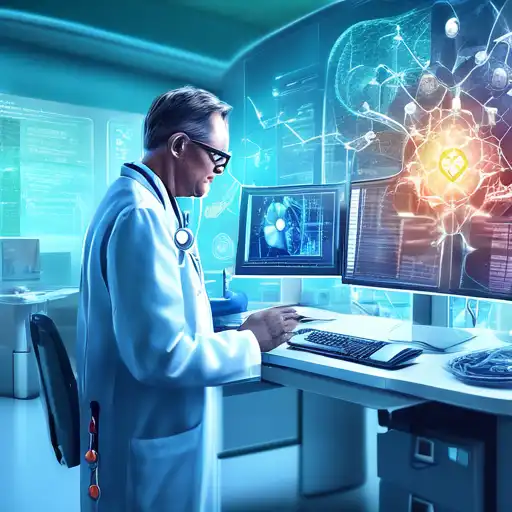The Revolutionary Impact of Data Science on Healthcare
In the modern era, data science has emerged as a transformative force across various sectors, with healthcare being one of the most significantly impacted. The integration of data science into healthcare is revolutionizing how we diagnose, treat, and prevent diseases, offering unprecedented opportunities for improving patient outcomes and operational efficiencies.
Enhancing Diagnostic Accuracy
Data science is playing a pivotal role in enhancing the accuracy of diagnoses. Through the analysis of vast datasets, algorithms can identify patterns and anomalies that may elude human observation. For instance, machine learning models are now capable of detecting early signs of conditions such as cancer and diabetes with remarkable precision, enabling timely intervention.
Personalized Medicine
One of the most exciting applications of data science in healthcare is the development of personalized medicine. By analyzing a patient's genetic makeup, lifestyle, and environmental factors, healthcare providers can tailor treatments to the individual's specific needs, significantly improving the efficacy of therapies.
Operational Efficiency
Beyond patient care, data science is streamlining healthcare operations. Predictive analytics can forecast patient admissions, helping hospitals allocate resources more effectively. Similarly, data-driven insights are optimizing supply chains, ensuring that critical medications and equipment are available when and where they are needed most.
Preventive Healthcare
Data science is also shifting the focus from treatment to prevention. Wearable devices and mobile apps collect real-time health data, enabling individuals and healthcare providers to monitor health indicators and intervene before serious conditions develop. This proactive approach has the potential to reduce healthcare costs and improve quality of life.
Challenges and Ethical Considerations
Despite its benefits, the integration of data science into healthcare is not without challenges. Issues such as data privacy, security, and ethical use of AI must be addressed to fully realize the potential of these technologies. Ensuring equitable access to data-driven healthcare solutions is also a critical concern.
In conclusion, data science is transforming healthcare in profound ways, from enhancing diagnostic accuracy to enabling personalized medicine and improving operational efficiencies. As the field continues to evolve, it promises to further revolutionize healthcare, making it more predictive, preventive, and personalized. The journey is just beginning, and the possibilities are limitless.
For more insights into how technology is shaping the future of healthcare, explore our articles on AI in Healthcare and The Future of Medicine.
